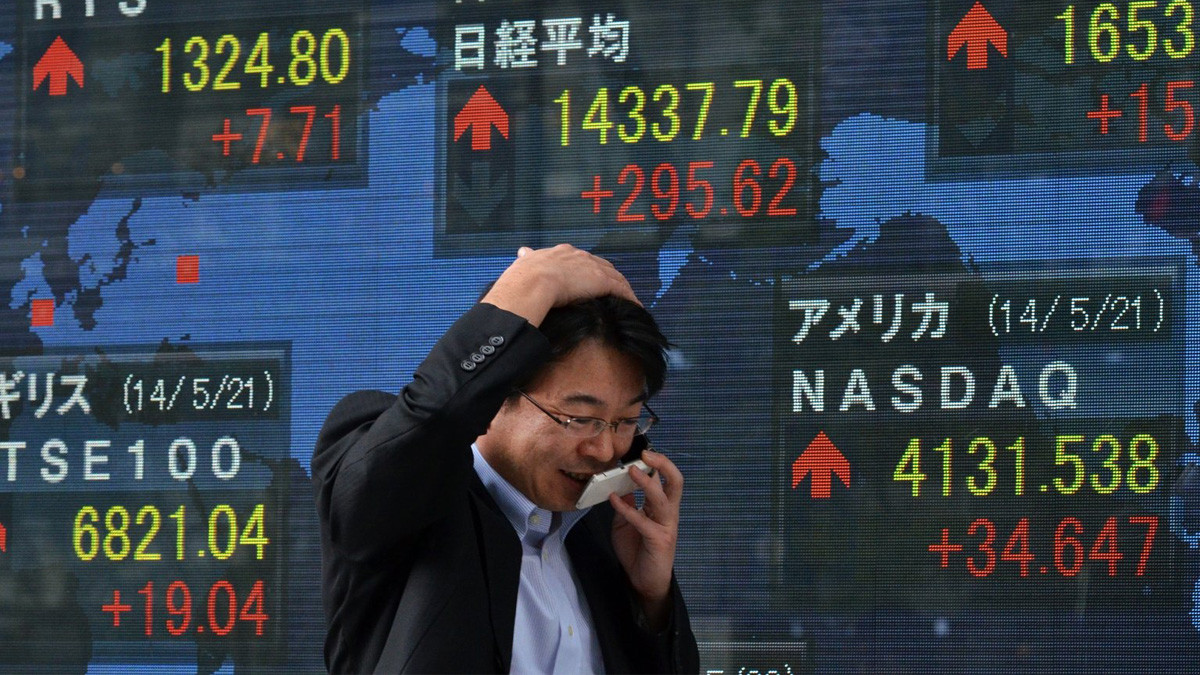 Japan's economy grew an annualised 1.3% rate in the three months from April to June, revised Cabinet Office data showsPhoto: RTE.IE
Japan's economy grew an annualised 1.3% rate in the three months from April to June, revised Cabinet Office data showsPhoto: RTE.IE
SINGAPORE – Japan’s sovereign credit rating could fall one to three notches in the coming decade if the government does not implement a credible fiscal consolidation plan. This risk, which the ASEAN+3 Macroeconomic Research Office highlighted in its recent annual consultation report on the country, underlines the challenges facing Japanese policymakers at a time of mounting global economic turmoil.
Even before the outbreak of the COVID-19 pandemic, Japan was struggling to maintain fiscal discipline in order to contain its government debt, which was and remains the highest in the world as a percentage of GDP. But the government’s strong efforts, combined with sustained economic recovery following the global financial crisis, reduced the fiscal deficit from 8.7% of GDP in 2009 to 3.1% of GDP in 2019.
As a result, Japan’s government debt plateaued at around 230% of GDP from 2015-19, after rising continuously for about a decade. In comparison, government debt in the United States and the eurozone in 2019 stood at about 107% of GDP and 84% of GDP, respectively.
The COVID-19 pandemic stalled the government’s debt-control efforts by forcing it to roll out massive stimulus packages in fiscal years 2020 and 2021 to mitigate the economic fallout and fund public-health measures. For FY2022, which starts on April 1, the government has proposed a record initial budget of ¥107.6 trillion ($892 billion), implying that the fiscal deficit will remain substantial, at about 6% of GDP.
Despite Japan’s large public debt, the country’s credit rating remains strong, at A or A+. This could be mainly because ratings agencies recognize the strength of Japan’s institutions, its advanced economic development and high per capita income, exceptionally strong external position, large domestic investor base, and full access to capital markets. These factors have partly mitigated Japan’s economic weaknesses, including its high debt-to-GDP ratio, sustained fiscal deficits, and limited growth prospects – although the country’s rating outlook worsened in 2020 when the pandemic began.
To gauge Japan’s long-term fiscal prospects and their implications for the country’s sovereign rating, we created three scenarios – reform, baseline, and adverse – with different assumptions regarding key macroeconomic and financial variables through FY2030. A pivotal consideration in our scenarios is the economic fallout from the COVID-19 crisis, which may temporarily or permanently reduce Japan’s long-term growth potential, depending on the duration of the crisis and degree of policy support.
All three scenarios project that Japan will continue to run fiscal deficits after the pandemic, mainly because of ballooning social-security expenditure. The country’s unfavorable demographic profile has led to a steady increase in government spending to fill the growing gap between social-security benefits and contributions, and this structural mismatch will continue to weigh on public finances.
Under the baseline and adverse scenarios, government debt is projected to increase to more than 280% of GDP by FY2030. But the reform scenario envisages that the debt-to-GDP ratio will peak at 258% in FY2021 and then decline to 236% by FY2030.
Our model projects that, under the baseline scenario, Japan’s sovereign rating will fall two notches to A- by FY2024, because of slower growth momentum and rising government debt.
The reform scenario, on the other hand, suggests only a one-notch downgrade, to A, during the next decade, mainly owing to the lagged impact of debt accumulation during the pandemic.
Finally, under the adverse scenario, we forecast that much slower growth and faster debt accumulation will cause Japan’s sovereign rating to decline by three notches, to BBB+.
That said, credit-ratings agencies may follow past practices and attach a positive bias to Japan’s sovereign rating if the country maintains its traditional economic strengths. Moreover, if the Bank of Japan maintains its ultra-loose monetary policy, even a drastic rating downgrade may not significantly increase the interest rates on Japanese government bonds. Nevertheless, sovereign downgrades could result in lower credit ratings and higher foreign-currency funding costs for Japanese private firms, as well as further reduction of foreign holdings of Japanese sovereign debt.
Our rating analysis highlights the need for the Japanese government to get fiscal consolidation back on track and boost the country’s long-term growth potential through structural reforms – including accelerated efforts to promote digitalization and the green economy.
To help limit any further increases in the debt-to-GDP ratio and ensure long-term fiscal sustainability, the Japanese authorities could consider setting up an independent institution with a mandate to monitor fiscal policy and performance. The country’s medium-term fiscal consolidation plan should emphasize containing social-security expenditure, while increasing tax revenues after the pandemic. All this would help to reduce the risk of future sovereign downgrades.
The COVID-19 pandemic and now Russia’s invasion of Ukraine have greatly increased the risks to the global economy. The task for Japanese policymakers is to navigate these challenges while keeping their own country’s fiscal house in order.
Jinho Choi is Deputy Group Head and Senior Economist at the ASEAN+3 Macroeconomic Research Office. Kimi Xu Jiang is an economist at the ASEAN+3 Macroeconomic Research Office.
Copyright: Project Syndicate, 2022.
www.project-syndicate.org

 Jinho Choi and Kimi Xu Jiang
Jinho Choi and Kimi Xu Jiang








